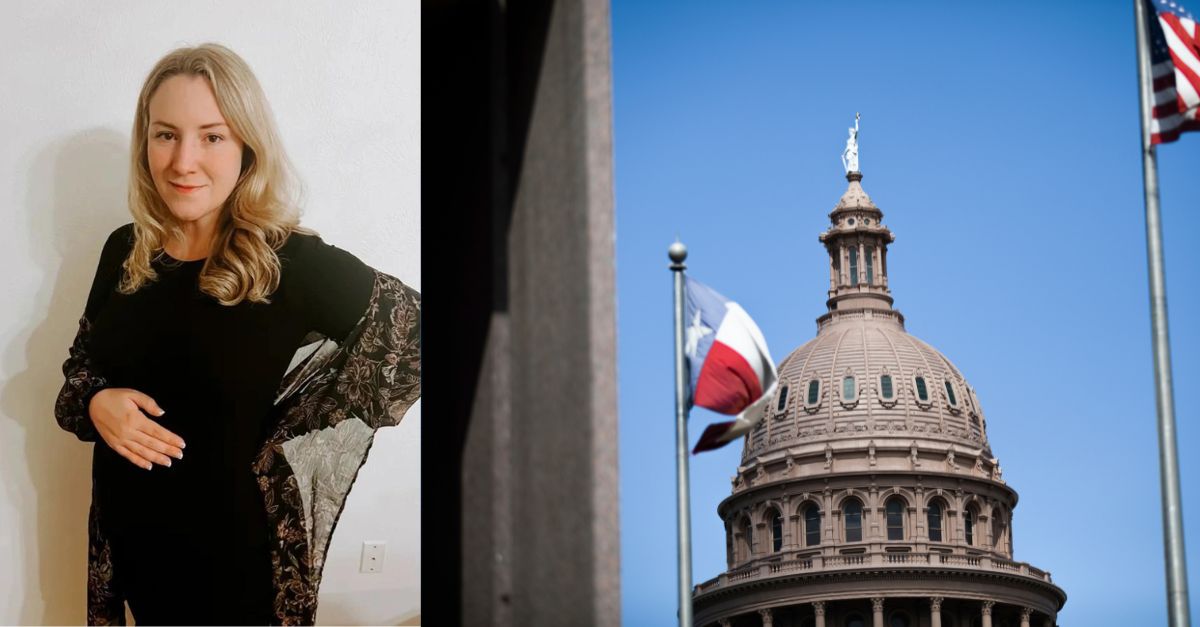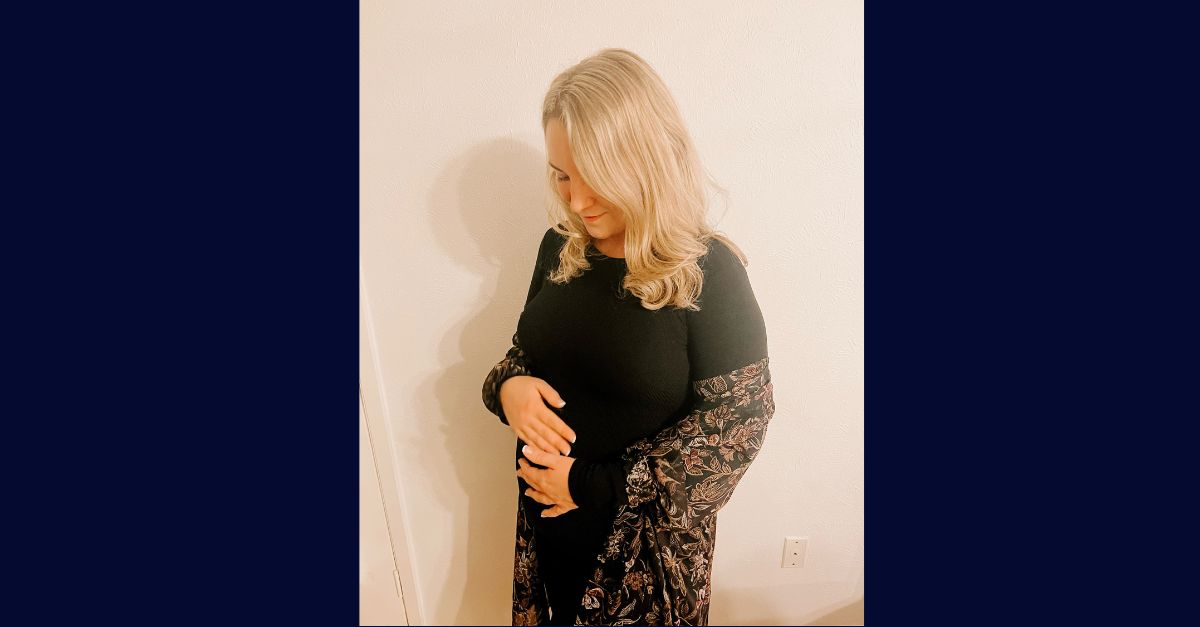
Left: Kate Cox (photo courtesy Center for Reproductive Services.) Right: The Texas State Capitol building can be seen between the Texas flag and the flag of the United States in Austin, Texas, on March 24, 2023. (Photo by Reginald Mathalone/NurPhoto via AP)
A judge in Texas has temporarily granted a pregnant woman’s request for an abortion in light of serious risks posed to her health including her ability to have children ever again should she be forced to give birth to a fetus with a rare fatal genetic condition.
Kate Cox, 20 weeks pregnant with a fetus that has a lethal condition known as trisomy 18, learned last month that when she gives birth it is likely the baby will be stillborn or die moments afterward.
The temporary restraining order from Judge Maya Guerra Gamble issued Thursday blocks Texas’ current abortion ban and now the 30-year-old mother of two will avoid what her attorneys and she said could have been serious risk to her future hopes of fertility and her health overall.
In Cox’s underlying petition against Texas obtained by Law&Crime on Thursday, her attorneys through the Center for Reproductive Rights argued that the abortion should be enabled immediately since Cox had been to a host of emergency rooms already, experiencing “severe cramping and unidentifiable fluid leaks for weeks.”
“Because Ms. Cox has had two prior caesarean surgeries (‘C-sections’), continuing the pregnancy puts her at high risk for severe complications threatening her life and future fertility, including uterine rupture and hysterectomy. Ms. Cox understands that a dilation and evacuation (“D&E”) abortion is the safest option for her health and her best medical option given that she wants to have more children in the future,” her attorneys wrote.
“Yet because of Texas’s abortion bans, Ms. Cox’s physicians have informed her that their “hands are tied” and she will have to wait until her baby dies inside her or carry the pregnancy to term, at which point she will be forced to have a third C-section, only to watch her baby suffer until death,” the petition continued.
NBC News reported Thursday from the courthouse in Texas where prosecutors from the state Attorney General’s Office begged the judge to keep the pregnancy intact.
Prosecutor Jonathan Stone downplayed the claims of suffering Cox and her husband told the court they would experience by pointing to who he argued was the real injured party: the state itself.
“The only party that’s going to suffer an immediate and irreparable harm in this case if the judge grants the requested order is the state,” Stone told Gamble, the outlet reported.
Responding to the decision from Gamble, senior staff attorney Molly Duane from the Center for Reproductive Rights said it was the right call, but she was aggrieved to think it had come to this.
“While we are grateful that Kate will be able to get this urgent medical care, it is unforgivable that she was forced to go to court to ask for it in the middle of a medical emergency,” Duane said.
Most women, she also acknowledged, “are not able to do what Kate has done,” she said.
Indeed at the Texas Supreme Court, a ruling is still in flux in the case Zurawski v. State of Texas. In that case, a judge found that Texas’ abortion ban was overly restrictive for women with complicated pregnancies and that exceptions must be made without doctors fearing threat of facing criminal prosecution. Several of the plaintiffs there suffered or were at threat of suffering great injury and anguish as a result of the state’s abortion ban.
An injunction was issued in August and now doctors are left to use their own judgment when providing abortion care in an emergency. That lawsuit was also advanced by attorneys from the Center for Reproductive Rights

Kate Cox photo provided courtesy of the Center for Reproductive Rights.
Have a tip we should know? [email protected]

